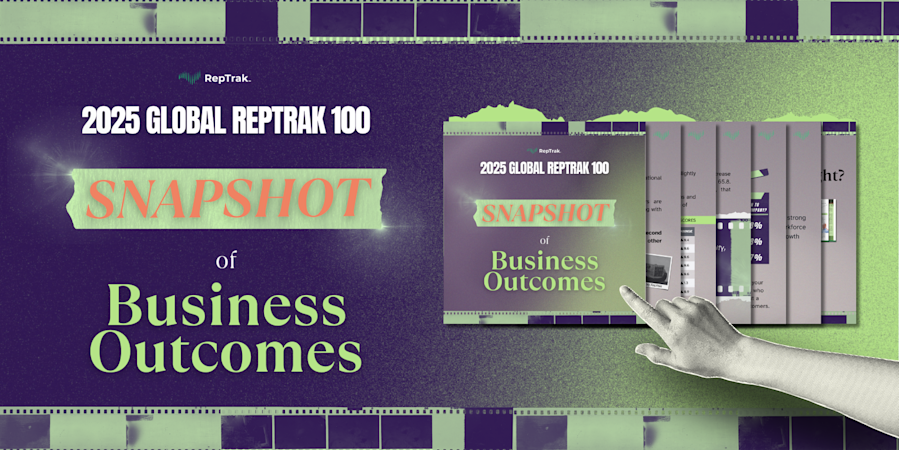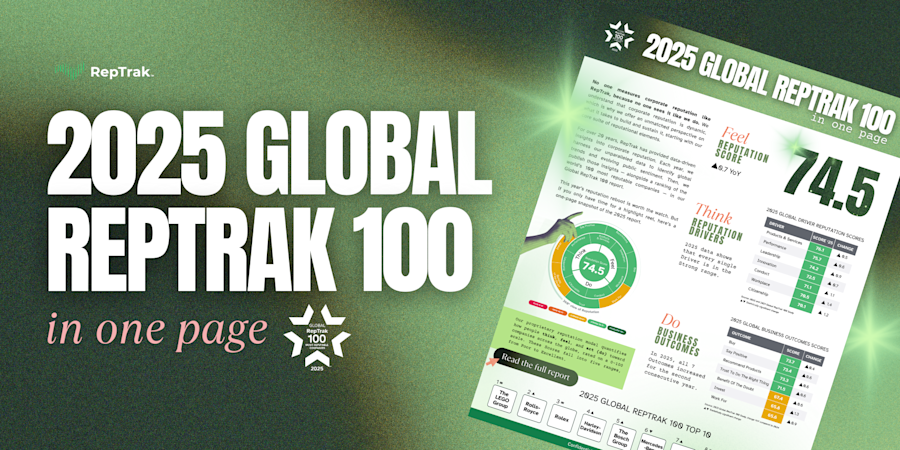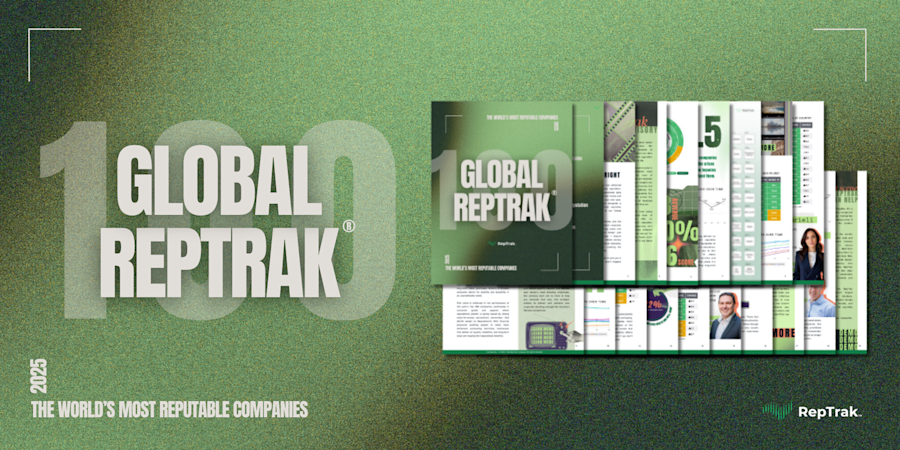Is a “Reputation Recession” Looming on the Other Side of the Coronavirus Pandemic?
Blog Post14 Apr, 2020
As we’ve all witnessed, the COVID-19 (coronavirus) outbreak has taken an unbearable toll on the lives of millions of people worldwide, who have endured physical health–related complications and untold mental and emotional suffering.
It has also had an unprecedented impact on the livelihoods of billions more, as people around the world continue to hunker down in a state of “stay-at-home” quarantine and struggle with the economic consequences.
At the same time, businesses are continuing to muddle through in dealing with suboptimal operating conditions, or varying states of temporary shut-down or economic furlough.
And now, in mid April, the growing concern for businesses is not just about the COVID-19 pandemic—it’s increasingly about the economic outlook for the new reality post–COVID-19, as well.
Even more so than in the time after 9/11 and during the Great Recession of 2008–2010, the prospects of a significant global decline in economic vitality and GDP are now highly likely. Indeed, based on recent predictions of the leading global investment banks, we are quite possibly headed for a deep recession.
This recession will be different, though. This time, chances are high that we could see a “reputation recession.”
What this means is, after COVID-19, companies will be partly judged on their economic strength and business viability. But also, and just as important, they will be judged on their moral and societal commitments to “doing good”—especially as it pertains to what they contribute to making the world a better place to live. Customers’ memories are long, and they will not soon forget which companies did and said the right things during the pandemic. Customers will also be more attentive to how companies treat their stakeholders during and after the reputation recession.
This set of dynamics will make it more challenging for companies to succeed. It will certainly benefit those businesses that are reputationally strong, and it will likely inhibit companies that are associated with weaker sentiment and less positive perceptions.
So, what is a company supposed to do amid all this uncertainty? For starters, this is not a time for them to close their eyes and wait till the pandemic goes away. Rather, by taking proactive action now, ahead of the possibility of a reputation recession, you will be better positioned for the short- and long-term.
Here are 5 things that every company should be doing now so they are ready and better able to navigate the looming reputation recession.
1. Double-down on your most loyal and valuable customers
Based on our most recent Global RepTrak study, fielded in early Q1 of 2020, “meeting customer needs” was already the #2 most important factor in defining the reputation of companies across the G15 economies. This is especially important today, given that it is five times more expensive for companies to acquire a new customer than it is to keep an existing one. In other words, you can’t afford to lose your already loyal customers; they need to be your best ambassadors and advocates. Arm them with information about your Corporate Responsibility efforts and encourage them to pay it forward.
2. Ensure you’re delivering high quality products, services, and experiences
During times of economic difficulty, people are looking for reassurances that they can rely on the products and services that matter, and companies that can best serve their needs. This is not just about delivering a good deal, but rather, about delivering a consistently high-quality experience. As the economy slows down and moves into a state of hyper-competitiveness, the expectation for high quality customer experiences at a good value will likely become even more of a differentiator. Prioritize being flawless in your execution and delivery of products and services. Now is not the time to drop the ball. Even in a tough economy, delivering on your Products & Services will be the most important driver of your reputation.
3. Keep your employees committed, inspired, and motivated
Our recent studies on the COVID-19 pandemic have highlighted the importance of taking care of your workforce as a key stakeholder. These are the people who are key to helping your company get to the other side and critical in outplaying the competition. A demoralized workforce can be crippling. So the more you can take uncertainty out of the equation for your workers and support them as humans, not just employees, the better. That means going above and beyond, and doing more than just helping employees to work from home. One example of a company that has stepped up by supporting employee well-being is Ally Financial, which has added childcare, mental health, and financial planning support to its benefits package. Other companies—like Bank of America, Danone, and Salesforce—have gone even further, assuring employees that they will not be conducting any significant layoffs during this tough time.
4. Live your purpose, and authentically practice what you aspire to stand for
Right now, your actions speak louder than your words. And customers want to support businesses that take care of the communities in which they operate. How strongly a company walks the walk when it comes to purpose could make all the difference. Allstate is a great example of a company that is purposefully leading the way in the insurance space. The “good hands” company that proactively protects the world from mayhem led the way in its industry by boldly declaring a Shelter-in-Place Payback check. Allstate is living its purpose—and not overtly benefiting from lower accident claims due to widespread quarantine.
5. Think like a good citizen
Now is the time to be a sustainability leader, and to focus on making “public service announcements” that help and support the community. It’s not the time for aggressive “buy now” or self-promotion advertising. To that end, Verizon launched a streaming music series, called Pay It Forward Live, to support small businesses. And Mastercard, in partnership with the Bill & Melinda Gates Foundation and Wellcome, has diverted $125M in resources to create a COVID-19 Therapeutics Accelerator to help accelerate the development of a treatment for COVID-19. Efforts like this surely attract attention, but the focus is on doing good and not directly earning sales.
What your company needs to do
Taking proactive and decisive action about what to do and say during these times of uncertainty—both during the COVID-19 and in the aftermath of the pandemic—begins with staying informed. Knowledge is power, and empirical data can provide added confidence of what actions to take—and can help with providing more clarity behind your decision making. In the alternative scenario—where a decision is made without that insight—well, then, your guess is as good as anyone else’s.
In short, you may not be able to stop a recession from happening. But you can take more control of your own destiny by taking smart actions now to ensure your company stays on top of what public perception is, so you can focus on the drivers that matter most to your business success.
Your potential to survive, and thrive, may depend on it.
Stephen Hahn-Griffiths Executive Vice President The RepTrak Company [email protected] @shahngriff





